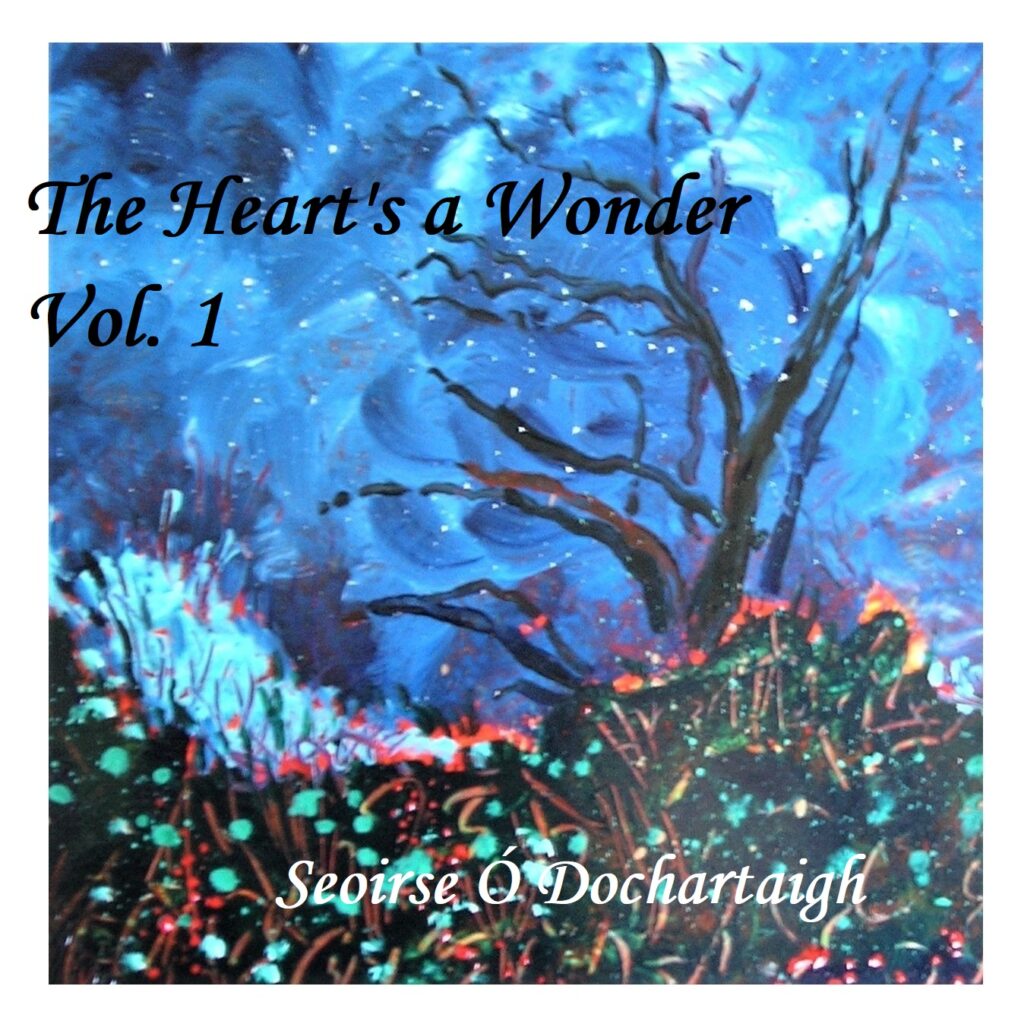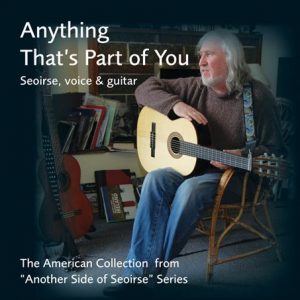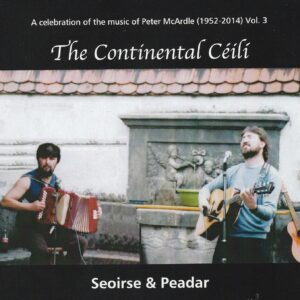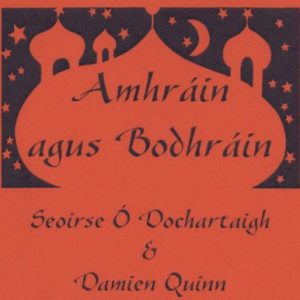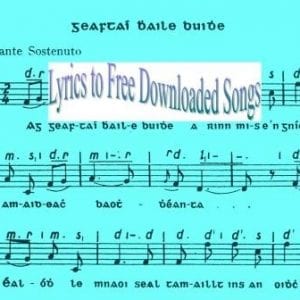Description
The Heart’s a Wonder Vol.1
This is the first album I ever recorded that is just about the SONG. In previous years, it was all about “style” and “originality” and being cautious not to sound like anyone else – but even more than sounding like another well-known artiste you never, never, ever copied those guitar chords, did you, and put on a nasalized voice like Dylan’s (…or did you? Yes, I did, come to think of it. I hope there’s no-one around who remembers.) Yes, this album is all about the SONG and I, unashamedly here, have done a handful of “covers” without even thinking that I was trying to sound original. So, you will hear, if you can endure all of the fifteen songs, a nod in the direction of some of my favourite singers and interpreters of songs: Gram Parsons, Caitlín Ní Ghallchóir, Mama Cass, Katie Melua, Camilla O’Sullivan, Jodie Winter, Eva Cassidy and Roberta Flack. You will notice that most of these favourites are female. I don’t know why that is the case. Maybe I thought I could get away with it as I don’t think I sound very feminine in my voice thus camouflaging any obvious imitations!
The other matter is the question of what a listener expects from a singer like me with seven or eight studio albums already recorded, some of which are populated only by songs in Irish. I have become associated with the notion that I eat, sleep and breathe songs in Irish. No, not me! That all happened during my exploratory years. Indeed, as I am now entering my twilight years, I have noticed how much I also love songs in English…and songs in French (there is a bilingual one here in this collection.)…and songs in other languages. Two songs in German were on my original working list but unfortunately didn’t make the final cut, likewise a beautiful Spanish-Mexican song by Ry Cooder. But, to keep the ambience just a little Iberian, I give you An Fhalaigín Mhuimhneach with a Spanish twist.
Finally, there is my choice of musical arrangement. I have raided the musical cookie-jars of many albums here and tried to replicate what I found so appealing: Katie Melua’s and Mike Batt’s interpretation of The Cure’s Just Like Heaven is simply magical; Roberta Fleck’s intense reading of Leonard Cohen gets me every time; Jodie Winter and her father provided us a very iridescent version of God only Knows. I borrowed freely from all these arrangements. Eva Cassidy’s settings of other people’s songs are pristine and fresh. I learned a lot from her. Pristine and Fresh could be my mission statement.
The Woods of Ballyarr
Ballyarr Wood is a nature reserve, a wonderland. It is situated about halfway between Letterkenny and Milford on the lower foothills of the Fanad Peninsula in Co. Donegal. Kathryn and I used to take our kids and pets out there regularly and on more than one occasion were greeted by a vibrant carpet of flowering bluebells. Breath-taking! I wrote this song to celebrate the magic and mystery of such woodlands.
Hickory Wind
I don’t do very many American Country songs but I sing two of my favourites on this disc: I Think of You (Tr. 5) and Gram Parson’s heart-rending reflections on his home-place in his Hickory Wind. I am very drawn to Country singers when they sing the word “home”. It resonates very deeply with me. I was given a recording of the song – Gram singing it with the Byrds in 1968 – by my old friend from our college years, Brian Williamson (What a gift! Thank you, Brian!), but I had to peel away the dobro, drums and bluegrass fiddle to get to the essence of the song and this is what I came up with.
Just Like Heaven
I had never known The Cure’s original version of Just Like Heaven of 1987 – forgive me. I had been listening to Katie Melua singing it in the Mike Batt arrangement made in London in 2006 and polished off with the Irish Film Orchestra in Dublin. I don’t know which of them – Melua or Batt – came up with this very engaging account of the song which is utterly different from The Cure’s original. Occasionally I looked at the credits in the Melua CD booklet and saw the names “Gallup / Smith” and wondered who they were. My daughter Katharina soon put me in the picture! It’s a song by The Cure, dad! Both of us loved it and played it together frequently on guitars on the living-room sofa. “Metaphysical” is the only word I can come up with to describe what the song’s about. It’s a love-song but also a sequence of brief, but profound moments captured in the lives of two lovers, and Robert Smith does this so well as a lyricist. Simon Gallup, too, came up trumps with an unforgettable musical trope that holds the lyrics together superbly.
Hey, That’s No Way to Say Goodbye
Leonard Cohen wrote a song I like very much but I don’t care for his singing of it nor his arrangement. Admittedly, it was from his 1st album when he was just setting out on his career as a folk-singer. To me, it sounds like a rough demo, hastily recorded. Its poetic/musical richness never really struck me until I heard Roberta Flack’s rendering of it on the album that also contains her big hit “The First Time Ever I Saw Your Face”.
It’s sometimes disarming to hear the poet / song-writer himself explaining how and why he writes songs, what the inspiration was, etc. At times, it’s better not to know such things. As I said, I love this song and enjoy singing it and that seems to be enough for me. I was about to read more about it on his Wikipedia page but stopped myself because he began to say something about an argument he had had with a blonde…Read no more, Seoirse! I said to myself. Hey, That’s No Way to Say Goodbye speaks to me, not about an “argument” or a “blonde” but about those little incidents from our adolescent years where we break up with a person – and often for no good reason – a person we may have dated only once or twice and with whom we had been, shall we say, “intimate”. (This can also be about girls who broke up with me.) It seems cruel to part like that, one of the two lovers saying Hey, That’s No Way to Say Goodbye. It’s only years later in our adulthood that we can look back and hear again those steps that don’t always rhyme as we turn that corner on the relationship that really wasn’t a relationship in the first place but we can sense that we betrayed something.
I Think of You
My old friend from Iowa, Susan Shore (now living with her husband, Michael, in Arkansas – a vibrant musical duo) arrived at Coláiste Bhríde, Rann na Feirste one sunny summer’s day in 1978 where I was teaching singing. She had with her – bless her – a bundle of Rounder Record LPs for me – she had been working with Rounder. Among them was an LP that I am still listening to nearly 50 years later: “Fennig’s All-Star String Band – Saturday Night in The Provinces”. Among the delights on this record – and there are many – is I Think of You. I was immediately taken by its beautiful poetry – full of naturalistic imagery – and its attractive melody. The refrain itself is a real gem. I did sing it at home an odd time, reading off the lyrics from my song-book because I hadn’t yet memorized the words. Now, so many decades later, here it is! It was written by Bruce Phillips, aka “Utah” Phillips, a labour organizer, folk singer, storyteller and poet.
Perfect Day
Lou Reed of The Velvet Underground penned this song in 1972. It was the B-side of his major hit, “Walk on the Wild Side” which we used to sing as students letting off a bit of steam. Perfect Day’s fame was given a boost in the 1990s when a star-studded version was released as a BBC charity single in 1997, reaching number one in England, Ireland, and Norway. I always liked the warm, human ordinariness of the people described in the song; everyone doing and saying the things we all do on a sultry summer’s day when we forget for a while that we are not actually living in a utopia.
Is Fada Liom Uaim Í (She is too long away from me)
I learned this song from Caitlín Ní Ghallchóir (Uí Dhomhnaill) from Rann na Feirste, renowned singer of many trophies and accolades. Is Fada Liom Uaim Í, in its rather archaic rhetoric, seems to hark from a very early period of song-making, impossible to date now, but there are elements in it a very old type of love-song that has survived in Ireland in fragmentary form: that identified by Seán Ó Tuama as “An Cuireadh”(The Invitation). Although it is true that barely one example has come down to us in anything like complete form, many hundreds of themes, lines, phrases and imagery – which must be seen as part of the poetic language of an older culture – are found subtly interwoven into the whole fabric of Gaelic song. Nature or “Natural Magic” (Matthew Arnold) is the essence of this language. Here, almost every phenomenon of nature – in minute observation – is rapturously celebrated by poets whose personal experiences helped to fuse the love of nature and the nature of love into fleeting moments of unusual intensity.
I felt that the song’s long, meandering lines, however beautiful they might be, could be a bit taxing to listeners unfamiliar with sean-nós music. To balance this, I added a refrain that uses a musical fragment from another song and some self-penned words all of which I hope are in a similar mode to the traditional verses.
An Ghiobóg (The Untidy Woman)
I believe this traditional song from West Donegal is misnamed since the man in the song is equally untidy. Perhaps it should have been titled An Tuathalán agus an Ghiobóg – The Scruffy Man and Untidy Woman. This song is what is known in the Gaeltacht as a lúibín – a song for two singers in question and answer form, or, more accurately, call and response form. It first appeared in print in the book “Céad de Cheolta Uladh” (1915) by Énrí Ó Muireasa where he cites several versions from the Rosses in West Donegal.
My version is a mixture of verses from Ó Muireasa and verses from Clannad’s take on it from their live album of 1979. To that mixture I have added some spoken dialogue of my own making and given it the Reggae treatment. I was unable to find a singer to sing the wife’s part due to the restricted studio time, so I had a go at it myself by prefacing a verse with “Agus ‘sé dúirt sí…” (And this is what she said…). Both parties in the song (husband and wife) complain about the ragged clothes they wear; the poor night coverings; the daily chores undone; the drinking and carousing, etc. Both parties seem to be wholly unsuited to each other – and each guilty as charged. But it could also be just some friendly banter.
Dream a Little Dream of Me
Ellen Naomi Cohen (1941–1974), known professionally as Cass Elliot, was an American singer. She was also known as “Mama Cass”, a name she hated. She was a member of the singing group The Mamas & the Papas. Elliot’s version of Dream a Little Dream of Me (1968) is noteworthy for its contemplative pace, whereas many earlier recordings of it had been up-tempo versions—the song having been written in 1931 as a dance tune. It was written by a trio of song-writers called Fabian Andre, Wilbur Schwandt and Gus Kahn – the latter being the lyric-writer. It’s a difficult song for the average 3-chord guitarist.
I always loved the song and when I was learning it I watched a video of Mama Cass singing it. I couldn’t help noticing how incredibly light on her feet she was. Watch the video some time.
I sang this at our wedding in 2022 with musical backing from the talented Henry Girls.
Mo Chuisle (My Pulse / My Heart-Throb)
Mo Chuisle is the grammatically correct spelling for this hauntingly beautiful Irish song which its writers call “Macushla”. Literally, it means my pulse but metaphorically it’s understood to mean my love, or maybe, my heart-throb. The music was written in 1910 by Dublin composer Harold White who went under the pseudonym Dermot MacMurrough. The lyrics are by a lady called Josephine V. Rowe.
“Macushla” was a big hit for Irish tenor John McCormack but I only fully appreciated its truly melancholic beauty when I heard Camilla O’Sullivan singing it in a 1916 commemoration concert in 2016.
God Only Knows
This song by Brian Wilson of The Beach Boys to lyrics by Tony Asher was composed in 1966. Brian insisted that his brother Carl take the lead vocal, the rest of The Beach Boys adding harmonies. It is considered one of the most beautiful songs ever written and the Bach-like instrumental centre-piece is a tour de force in popular music. In my re-arrangement of God Only Knows, I have dispensed with the centre-piece which I felt, for me, was a distraction from the core message…which is? I really don’t know. Is it a love-song or a break-up song? I went for “ethereal” and actually use more vocal harmonies that the original. A singer called Jodie Winter, whose father is an arranger and record producer (can’t remember his first name) did a cover of the song and I got some ideas there to add to my arrangement.
What a Wonderful World
There is not much to say about this song; it floats away in a bubble of positivity looking down on a world that is full of war, violence, corruption and ethnic cleansing. Nevertheless… The record label that launched it into the world in 1967, ABC Records, was met with great resistance from the president of the company, Larry Newton, who disliked the song. He had to be locked out of the recording studio until the final notes were sung and played and captured on tape, but it made millions of dollars for the label in the end.
Everyone loves the original by Louis Armstrong, including myself, but my particular vocal rendering owes more to Eva Cassidy’s take which allows the singer to bend the notes here and there and soar higher than the song-writers’ original parameters.
My sweetheart Kathryn Daily urged me to learn this song and record it, so I dedicate it to her.
An Fhalaingín Mhuimhneach (The Little Munster Cloak)
Spanish influence on Irish music is not widespread. Some vessels of the Spanish Armada foundered on the coasts of Donegal, Galway, Sligo and Kerry in the late 1500s. Some survivors may have stayed in Ireland and married local girls and, perhaps, brought a tune or two with them from the old country. An Fhalaingín Mhuimhneach is a Gaelic song whose tune, or part of it, was published by Bartlett Cooke in 1793 as “The Bonny Black Irish Maid” but the tune is unmistakably Spanish. The Spanish composer Enrique Granados (1867-1916) features a variant of this same melody in his “Danza Espaňol” No.6, Op. 37, published in 1893. The earliest appearance of An Fhalaingín Mhuimhneach in print, with both words and music, is in Joyce’s Old Irish Folk Music and Songs (Dublin, 1909). It’s quite feasible that this Spanish melody was warmly received by the people of Kerry in the late 1500s. It inspired at least one anonymous Gaeltacht poet to write words to fit it. The song is a vivid description of a cloak of many colours – no doubt, the pride and joy of the poet.
Black Jack Davey
This is the traditional American version of a song that people heard on the wireless in Ireland in the 1950s as “The Whistling Gypsy” (translated later by Proinnsias Ó Maonaigh to become the popular Gaeltacht summer school song, “An Spailpín Fánach”). It is, of course, a version of the classic ballad, “The Raggle-Taggle Gypsies O”. Experts who have searched deeply for historical facts in support the story / legend of the lady of the castle who ran away with a gypsy and forsook her wedded lord and baby, have found absolutely nothing in the archives. It seems to have been a story – a theme, really – that charmed people in former times; a tale told and sung around the firesides of old and listened to with relish.
In arranging Black Jack Davey, I segued some medieval sounds I found in a fragmented archive which I believe was part of a more extensive one that once existed before the Hungarian Revolution of 1956, now, alas, destroyed.
Les Feuilles Mortes (The Dead Leaves)
I decided to keep this arrangement of this classic “Autumn Leaves” song to the bare minimum. It was recorded in one take – myself singing to my own guitar accompaniment. It’s a song that falls very comfortably on my fingers, particularly on the nylon strings, and the singing of it is so easy and satisfying. Not every song does this for the singer-guitarist; it’s often a struggle but this one just flows out effortlessly from within. There are countless versions of this song from Edith Piaf to Nat King Cole to Yves Montand but Eva Cassidy was my staring point and I worked backwards from there to the French original of 1946. I got some help with pronunciations along the way from my French friends in Carndonagh, Pascale and Pascal Thomas-Trabac. Merci beaucoup! It has lingered on for decades since the team of Kosma & Prévert released their song in 1947 but not long after that Johnny Mercer gave us the English version (“Autumn Leaves”) which is not really a translation but captures the mood rather well.
Ciorcal Rónáin (The Circle of Rónán)
In memory of Rónán Mac Aodha Bhuí (1970-2023). The Irish Times wrote “…irrepressible broadcaster who brought unique talent to Irish language and cultural activism…(he) will be remembered as a pioneer in Irish language broadcasting … a boon to musicians and public activists alike…”
Rónán established a circle. He was generous to everyone, especially musicians. He would form a circle around whatever musician he was interested in – and there were a lot of them. His voice and laughter were highly contagious and his circle was always open and always widening. You felt his love and respect for you… within the first minute of being his company.
I composed this guitar piece – Ciorcal Rónáin – in his honour. It is in the form of a circle, or rondo, returning again and again to the beginning. I tried to capture in it the inner soul of this wonderful person as I imagined his inner soul to be.
A star danced and under it he was born.
Just a selection here of lyrics featuring the songs in Irish (with translations)
Is Fada Liom Uaim Í
Is fada liom uaim í ar uaigneas ‘ach baile ‘ mbíonn sí
Is le gach ógánach suairc a ghluaisfeadh in aice na dí.
Dá dtigfeá-sa ‘nuas ar cuairt fa bharr’ na gcraobh
Le goirm na gcuach go ngluaisfinn leat-sa mar mhnaoi.
‘S ach a Mhalaidh a chéad-searc, ná tréig thusa mé go bráthach
‘S go bhfuil mé indo dhiaidh achan lá fa mhullaigh na n-árd.
‘S tú cruithneacht ar mhnáibh Éireann, is tú b’fhéile d’ar ghlac ariamh lámh
‘S dar mhionna mo bhéil ní bréag a bhfuil mé is tú a rá.
curfá:
A ghrá is a rúin, dá ngluaisfeá liom
Go tír dheas na meala thar toinn
Tá an long faoi sheol in imeall a’ cheo
Is téimid thar sáile anonn.
‘S ag ‘a Mhalaidh mo róghrá, tá an t-ór-fholt snoite go féar,
Cum cailce ‘tá ró-dheas a chuirfeadh bród ar fhearaibh a’ tsaoil
Béilín meala mar na rósaí, súl mhómhar’ ghorm gan claon
‘S i gcoillidh ‘buain chnódhnn ‘sé mo bhrón gan Mallaidh ‘gus mé.
Curfá:
A ghrá is a rúin, dá ngluaisfeá liom
Go tír dheas na meala thar toinn
Tá an long faoi sheol in imeall a’ cheo
Is téimid thar sáile anonn.
She is too long away from me in the loneliest corner of each town she happens to be And with every agreeable young man who is allured by drink If you could come to visit (me) around the tree-tops at cuckoo’s call I would travel with you as my wife.
Oh Molly, my first love, do not desert me ever Because I am following you every day about the summits of the hills. You are the finest of the women of Ireland, the most generous that ever accepted a hand And I swear an oath that it’s a lie I do not tell you.
Chorus:
Oh, my love and treasure, if you would only come with me To the pleasant land of honey over the waves The ship is in full sail at the edge of the mist Let us sail over the seas younder.
And it’s Molly, my great love, who has braided golden locks down to the grass, A white, pleasant waist that would make the men of the world proud Little honeyed lips like roses, graceful blue eyes without blemish. In a wood picking nuts it’s my sorrow that Molly and I can’t be.
An Ghiobóg
An Fear: Ná bí ag caoineadh gan a dhath, a bheainín Ná bí ag caoineadh gan a dhath
Bliain mhór sa taca seo ba dheas mo chulaith éadaigh Ba lúfar éadrom aigeantach a dhéanfainn bean a bhréagadh Ach shantaigh mise an ghiobóg mar bhí cupla bó mar spré ‘ci Is d’fhág sí ar an anás mé ‘s mo chraiceann geal gan léine.
An Fear: Ó! Mo chraiceann geal gan léine Ó! Mo chraiceann geal gan léin’
An Bhean:
Má bhí culaith mhaith an uair sin ort, b’fhéidir nár leat féin í; Ní raibh tú pósta seachtain go raibh fear na comharsa ‘ hiarraidh; Dhíol tú mo chuid ealaigh, le sin agus tuilleadh réiteach Is d’fhág tú ar an anás mé ‘s gan snáithe orm san oíche.
An Bhean: Óró dhíol tú mo chuid ba, a ghadaí Óró dhíol tú mo chuid ba
An Fear (ag caint):
Ní fhaca mé léine ghlan orm ariamh le linn mo phósta; Tá mo bhróga iontach cáidheach dhul chun Aifreann Dé Domhnaigh; Is nuair a chasann scaifte cailín orm ‘na seasamh ar an bhóthar – “Seo chugainn Worzel Gummidge!” agus caitheann siad clocha móra!
An Fear: Worzel Gummidge – is eisean Rastaman Worzel Gummidge Rastaman
A bhuachaillí, a bhuachaillí, an méid atá gan phósadh, Ná santaigí na giobógaí de réir mar bhíonn siad cóirithe Nó b’fhearr díbh cailín glan agaibh a scuabfadh amach i gcónaí Ná luaith bhuí na seachtaine dá cur amach Dé Domhnaigh.
An Fear: Luaith bhuí dá cur amach Dé Domnaigh! Luaith bhuí dá cur amach
An Bhean (ag caint):
Nuair a théann tú amach ar maidin – in ainm a bheith ag obair – ‘S é an áit a dtéann tú nó sa tábhairne síos an bóthar. Ar philleadh asíst ‘na bhaile duit ar theacht an tráthnóna Bíonn do bhríste gioblach stróicthe is tú comhair a bheith caoch-ólta.
An Bhean: Bhí tú ólta oíche aréir, caoch-ólta Bhí tú ólta oíche aréir
An Bhean:
A chailíní, a chailíní, an méid atá gan phósadh, Ná santaigí an sramaide mar gheall ar theach nó ar spleota B’fhearr liom buachaill fearúil ‘bheadh chun Aifrinn liom Dé Domhnaigh, Nó an leithéid sin de shramaide a bíos ag ól i gcónaí.
An Bhean: Is tú an sramaide gan dóigh Is tú an sramaide gan dóigh
An Fear:
Bliain mhór sa taca seo ba dheas mo chulaith éadaigh Ba lúfar éadrom aigeantach a dhéanfainn bean a bhréagadh Ach shantaigh mise an ghiobóg mar bhí cupla bó mar spré ‘ci Is d’fhág sí ar an anás mé ‘s mo chraiceann geal gan léine.
An Fear: Ó a bheainín! Ná bí ag caoineadh
Ná bí ag caoineadh gan a dhath…
The Husband:
A whole year since this time last year my clothes were perfectly fine
Light and agile and spirited I’d go a-courting women
But I fancied the untidy woman for ‘twas she had the two-cow dowry
But she left me here in poverty, my bare skin without a shirt.
The Wife:
If you had a good suit at that time maybe you didn’t own it;
You weren’t a week married till a neighbour came in looking for it
Then you sold my cattle and auctioned off the land
And you left me in dire poverty with no blanket on the bed.
The Husband (talking):
I never saw you wash a shirt the whole time we were married;
My shoes were mucky, filthy when I headed for Mass on Sunday
When I came on a bunch of girls standing by the side of the road
“Here comes Worzel Gummidge!” and they started throwing sods.
An Fear:
Boys! Boys! Boys! Boys! Those of you not married
Never fancy the untidy women because of the way they’re clad
Better for you a tidy girl who would always be brushing out,
Than the yellow ashes of the week on a Sunday thrown out.
The Wife (talking):
When you go out in the morning – supposedly to your work –
The place you really go to is the tavern down the road.
And then when you come home again as the evening is drawing near
Your trousers are all in tatters, blind drunk and on your ear.
The Wife:
Girls! Girls! Girls! Girls! Those of you not married
Never fancy the skinflint because of a house or patch
I’d prefer a manly boy than him coming to Mass on Sunday
Than the likes of that thick, useless yoke drinking till he drops.
An Fhalaingín Mhuimhneach
Dá mb’ agam an fhalaing ní thabharfainn don Mhuimhneach í Ach thabharfainn don scafaire ‘chóireochadh broth mín uirthi.
Falaing ar fhalaing, ‘sí an fhalaingín Mhuimhneach í Falaing ar fhalaing, ‘sí an fhalaingín Mhuimhneach í
Fógraim an fhalaing, is íomóg ‘ta daor uirthi Tá dubh agus dearg, glas-uaine ‘gus buí inti.
Falaing ar fhalaing, ‘sí an fhalaingín Mhuimhneach í Falaing ar fhalaing, ‘sí an fhalaingín Mhuimhneach í
Dá mb’agam an fhalaing ní thabharfainn don phíobaire í Is túisce do chraithfinn mar easair fém chaoirigh í
Falaing ar fhalaing, ‘sí an fhalaingín Mhuimhneach í Falaing ar fhalaing, ‘sí an fhalaingín Mhuimhneach í
Croí cráite ar an fhalaingín cé gur beag suarach í Is tapaidh do leagfadh sí fear spúir agus buataisí Falaing ar fhalaing, ‘sí an fhalaingín Mhuimhneach í Falaing ar fhalaing, ‘sí an fhalaingín Mhuimhneach í
Falaing ar fhalaing, ‘sí an fhalaingín Mhuimhneach í Falaing chrua chasta ‘s nár chasaidh sí choích’ orainn. Falaing ar fhalaing, ‘sí an fhalaingín Mhuimhneach í Falaing chrua chasta ‘s nár chasaidh sí choích’ orainn.
The Little Munster Cloak
If I had the cloak I wouldn’t give it to the Munsterman But would give it to the strapping fellow who would add some smooth fur to it.
Chorus:- A cloak of all cloaks, it’s a Munster cloak Cloak of all cloaks, it’s a Munster cloak (repeat)
I proclaim the cloak with expensive ivory on it; One that has black and red and green in it.
Chorus:- A cloak of all cloaks, it’s a Munster cloak Cloak of all cloaks, it’s a Munster cloak (repeat)
If I had the cloak I wouldn’t give it to the piper I’d sooner shake it out as bedding below my sheep
Chorus:- A cloak of all cloaks, it’s a Munster cloak Cloak of all cloaks, it’s a Munster cloak (repeat)
Woe betide the little cloak even if it is tiny and trivial How quickly it would it floor a man, a man with spurs and boots on him.
Chorus:- A cloak of all cloaks, it’s a Munster cloak Cloak of all cloaks, it’s a Munster cloak (repeat)
Final Chorus:-
A cloak of all cloaks, it’s a Munster cloak A hard, ungainly cloak is one that would never be cast upon us.(repeat)
